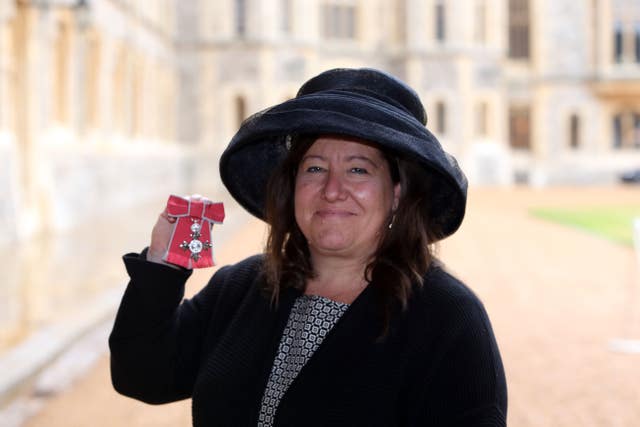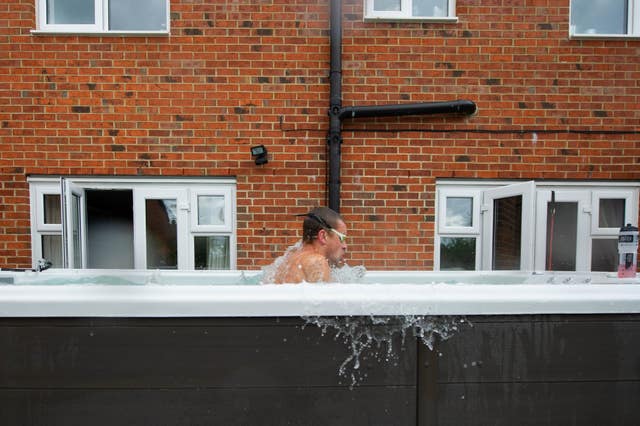All competitors and coaches returning to training amid the coronavirus pandemic must have a one-to-one meeting to ensure they understand the risks of returning to their specific sport and the steps being taken to mitigate those risks.
Guidance published by the Department of Digital, Culture, Media and Sport (DCMS) on Wednesday outlines how elite athletes and support staff can get back to work in the safest way possible.
The guidance is focused on the first step of the return, where athletes will be expected to work alone or in small groups while maintaining social distancing at all times.

The DCMS Secretary of State, Oliver Dowden, said: "I know our sports stars are keen to get back to training and this guidance will enable them to do so in a safe way. Our top priority is protecting the health of athletes, coaches and support staff.
"Enabling athletes to get match-fit is an important milestone towards restarting competitive sport behind closed doors – but we have not given a green light yet. We are clear that this can only happen on the advice of medical experts and when it is safe to do so."
Step two will allow for 'social clustering' – tackling, sparring and close-quarters coaching for example.
The advice has been put together by a working group featuring sports administrators, competitors and in collaboration with DCMS and elite sports funding body UK Sport.
NEWS: A significant step towards the resumption of elite sport as we today publish guidance that will help Britain's top sportsmen and women return to training https://t.co/7agqm2I2V6 #StayAlert pic.twitter.com/aZubQftU0B
— DCMS (@DCMS) May 13, 2020
The chief executive of UK Sport, Sally Munday, expects sports will differ in how quickly they can safely return to training and that ultimately, the decision to do so rests with each individual.
"It is important to note that the publication of this guidance does not mean that all Olympic and Paralympic sports and athletes should return to training straight away and indeed, we fully expect different sports will return to training at different times," she said.
"Each sport will need to make a risk assessment against the guidance and determine what is best for both their athletes and staff.
"The choice to return to training is also a personal one. Every sport is different and everyone's personal circumstances are different and whilst clearly there are many who are keen to return to training as soon as possible, there are those who will have genuine concerns or personal circumstances that make this challenging.

"As always, we are urging all sports to continue to make the welfare of athletes and staff their number one priority."
Each sport is advised to have a named 'Covid medical officer', who is responsible for managing any positive cases and overseeing the return of athletes who have recovered from Covid-19 and isolated themselves for the required period of time.
Sports should agree a clear position on how athletes who are vulnerable, or have vulnerable family members, should use the training facility. They should also address any additional, specific needs of Paralympic competitors.
UK Sport CEO Sally Munday outlines implications for Olympic and Paralympic sport following government return to training guidance.
💬"Each sport will need to make a risk assessment against the guidance and determine what is best for both their athletes and staff."
More info⤵ï¸
— UK Sport (@uk_sport) May 13, 2020
Each sport's 'mitigation plan' should include how screening and testing for the virus will take place before each entry to the training venue, and how anyone who becomes symptomatic at the venue is managed.
It should also outline how any equipment brought into the training venue will be cleaned and disinfected. The mitigation plans must be individually discussed and understood with everyone on a one-to-one basis before they first re-enter a training facility.
Athletes are advised to follow social distancing rules in getting to training venues, which would appear to rule out car-sharing or using public transport.
The guidance also states that if there is a confirmed or suspected case of Covid-19 involving someone who uses the training facility, or someone they have been in contact with tests positive for the virus, he or she must isolate themselves in accordance with the Public Health England advice.
/https%3A%2F%2Fsportsmole-media-prod.s3.gra.io.cloud.ovh.net%2F20%2F17%2Foliver-dowden.jpg)
/https%3A%2F%2Fsportsmole-media-prod.s3.gra.io.cloud.ovh.net%2F25%2F22%2Fliverpool_1.jpg)
/https%3A%2F%2Fsportsmole-media-prod.s3.gra.io.cloud.ovh.net%2F24%2F44%2Fmatheus-nunes-rico-lewis-ruben-dias-manuel-akanji.jpg)
/https%3A%2F%2Fsportsmole-media-prod.s3.gra.io.cloud.ovh.net%2F24%2F07%2Fameche.jpg)